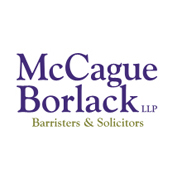Major COVID-19 vaccine producers are attempting to have their vaccines approved for use in children as young as five years old.1 With their approval, separated parents' beliefs about whether their child should receive a COVID-19 vaccination is an issue with the potential to further divide families.
In Ontario, some recent cases discuss whether one parent can have exclusive authority over vaccination-related decisions for their child while the other is against it. These cases stand for two general principles: it is generally in the best interests of the child to be vaccinated; however, if a mature child can provide consent about medical treatment, they will very likely be able to refuse the vaccine, as is their right under the Health Care Consent Act.2
Defining Consent
To provide consent for a medical treatment, including vaccination, a child must be able to “understand the information that is relevant to making a decision about the treatment…and be able to appreciate the reasonably foreseeable consequences of a decision or lack of a decision.3 This test will be applied on a case-by-case basis.
Decisions on Children's Vaccinations
In B.C.J.B., the father was granted sole decision-making power over whether to vaccinate the parties' 10-year-old child with a future COVID-19 vaccine approved for use in children.5 The mother argued against vaccinating the child against COVID-19. In this case, vaccination was in the best interests of the child, who also did not have a sufficient level of maturity to make the decision themselves.6
The Court held that the best interests of the child were to be vaccinated. |
In I.S., the mother, who had sole authority over medical care and decision-making, was against administering any vaccines to her 5-year-old child.7 The Court held that the best interests of the child were to be vaccinated.8 While this case did not speak directly to the COVID-19 vaccine, as it was not widely available, it speaks to how government-recommended vaccinations, generally, are in the best interests of children.
In Tarkowski, the Court granted sole decision-making responsibility in all areas to the mother of the parties' seven-year-old child except for decisions concerning ongoing and future vaccinations. It held the father would have sole decision-making responsibility to decide whether to vaccinate the parties' child against COVID-19, even if the mother refused to consent.9
In reaching its decision, the Court considered the parents' history around vaccinations generally.10 The mother had a history of expressing debunked concerns related to vaccinations and delayed or refused some of her child's vaccinations. On the other hand, the father demonstrated an understanding of vaccines' risks and benefits. The Court found that he would be able to decide whether their daughter should receive the COVID-19 vaccine based on the medical advice he receives, as he has no biases.11
In Saint-Phard, the father was granted sole decision-making responsibility concerning whether to vaccinate the parties' fourteen-year-old child against COVID-19.12 The Court stated that the applicable government authorities concluded the COVID-19 vaccine is safe and effective for children aged twelve to seventeen.13 The Court also found the child did not have an accurate understanding of the risks and benefits of receiving the vaccine.14 His physician and mother had misinformed him. The best interests of the child were to be vaccinated against COVID-19.15
...the children were ultimately deemed mature enough to make their own decisions... |
In A.C., the Court concluded that it was in the children's best interest to be vaccinated against COVID-19.16 However, the children were ultimately deemed mature enough to make their own decisions regarding whether to be vaccinated against COVID-19.17
Post-R.S.P. Implications on Future Decisions around COVID-19 vaccines
In R.S.P v. H.L.C., the Court assessed whether reconciliation counselling between the mother and daughter was appropriate in light of the minor child's capacity to consent to medical treatment.18
In its analysis of the law concerning medical decision-making for minor children, the Court in R.S.P. commented on the recent COVID-19 vaccination cases of Saint-Phard and A.C. v. L.L.
With regards to Saint-Phard, the Court commented on the “fatal flaw” in that case, stating the Court in Saint-Phard misunderstood the purpose of judicial notice when it took notice of the safety and efficacy of publicly funded vaccines, which is not an indisputable fact but rather an opinion.19 It also took issue with the Court's conclusion in Saint-Phard that the vaccine provides beneficial protection to all children and ought, therefore, to be received by the child in question, which it considered an overbroad statement that did not consider the factors in A.C. v. Manitoba.20
With regards to A.C. v L.L., concern was raised that the Court in A.C. had made “very concerning and overly broad comments” in obiter, in the context of a matter where the parties agreed and Court found the children could provide consent themselves, resulting in no obligation for the Court to provide further comment on the resolved issue of whether the vaccine was in the children's best interests.21
In the totality of the circumstances, it would appear Courts which are faced going forward with issues of COVID-19 vaccination for minor children will require evidence before them that COVID-19 vaccines are safe and effective for a particular child, introduced through qualified experts who have the opportunity to be cross-examined. Further, parties would appear to need to refer to the guidance in A.C. v. Manitoba when open issues concern medical decision-making for a minor child – for example: whether to proceed with COVID-19 vaccination.
As of the date of publishing, many of the referenced decisions are still within the appeal period, thus it is important for that reason and generally speaking that you seek legal advice.
- Pfizer And BioNTech Announce Positive Topline Results From Pivotal Trial Of Covid-19 Vaccine In Children 5 To 11 Years (September 2021)
- Health Care Consent Act, SO 1996, c 2, s 10.
- Ibid at s 4(1).
- A.C. v. Manitoba (Director of Child and Family Services), 2009 SCC 30 (CanLII), [2009] 2 SCR 181, retrieved on 2022-01-16 for additional information on consent.
- B.C.J.B. v. E.-R.R.R. 2020 ONCJ 438 at para. 2 [B.C.B.J.].
- Ibid at paras. 14, 243
- I.S. v. J.W. 2021 ONSC 1194 at paras. 180-181 [I.S.].
- Ibid at para 185.
- Tarkowski v. Lemieux 2020 ONCJ 280 at para. 65-66 and 69-76 [Tarkowski].
- Ibid at para 73.
- Ibid at para 75.
- Saint-Phard v. Saint-Phard, 2021 ONSC 6910 at para 3 [Saint-Phard].
- Ibid at para 7.
- Ibid at para 17.
- Ibid at para 20.
- A.C. v. L.L., 2021 ONSC 6530, at para 32 [A.C.].
- Ibid at para 43.
- R.S.P. v. H.L.C., 2021 ONSC 8362, at paras. 49-55 [R.S.P.].
- Ibid at para 56.
- Ibid at para 59.
- Ibid at para 60.


